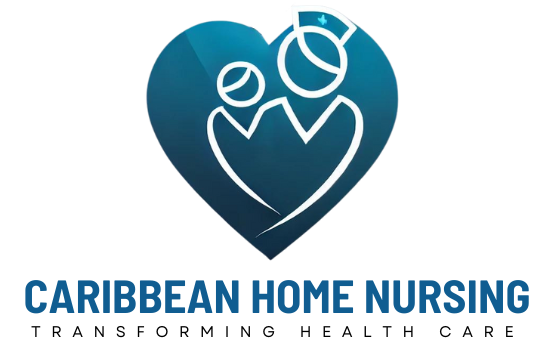At-home medical care services have grown in importance in Trinidad and Tobago, offering an essential solution for individuals who require medical assistance but prefer to remain in the comfort of their homes. Whether it’s short-term recovery care after surgery or long-term management of chronic conditions, at-home medical care helps patients maintain their independence while receiving professional support. This approach is especially beneficial for the elderly, those with mobility issues, or individuals with chronic health conditions that require continuous monitoring.
Why Choose At-home Medical Care?
At-home medical care offers personalized attention and allows healthcare providers to develop a deeper understanding of the patient’s environment and unique needs. It fosters a sense of familiarity and comfort for patients, particularly for those who may experience anxiety or discomfort in hospital settings.
Here are the key benefits of at-home medical care:
Convenience: Patients don’t need to travel to healthcare facilities, saving time and reducing the stress of transportation.
Personalized Care: Home healthcare professionals can tailor their services to the specific needs of each patient.
Cost-effective: At-home care can be a more affordable option than prolonged hospital stays.
Better Quality of Life: Receiving care at home often leads to a better emotional and psychological state for patients, which can contribute to faster recovery.
Reduced Risk of Infections: Staying at home limits the exposure to hospital-acquired infections, making home care a safer alternative.
In Trinidad and Tobago, where medical resources can sometimes be stretched, at-home medical care helps alleviate the burden on healthcare facilities while offering patients quality care in the comfort of their homes.
Services Offered Through At-home Medical Care in Trinidad
In Trinidad and Tobago, at-home medical care services encompass a broad range of care options tailored to meet the needs of different patients. Some of the most common services provided include:
Skilled Nursing Care
Skilled nursing care at home is usually provided by licensed nurses who administer medications, manage intravenous (IV) therapies, and monitor health conditions such as diabetes or hypertension. These services ensure that patients receive professional medical attention without having to visit a clinic or hospital.
Personal Care Assistance
Many at-home medical care services include assistance with daily living activities such as bathing, dressing, grooming, and feeding. Personal care aides can also help with mobility issues, providing the necessary support to keep patients safe and comfortable in their homes.
Chronic Disease Management
For patients with chronic conditions such as diabetes, heart disease, or arthritis, at-home medical care offers continuous monitoring and management of their condition. Care providers work closely with the patient’s healthcare team to ensure medication adherence and manage symptoms effectively.
Physical Therapy and Rehabilitation
At-home rehabilitation services help patients recover from surgeries, injuries, or strokes. Physical therapists visit the patient’s home and provide individualized treatment plans to restore mobility, strength, and functionality.
Palliative Care and Hospice Services
Palliative care focuses on improving the quality of life for patients with serious illnesses by managing pain and other symptoms. Hospice care, which is offered for terminally ill patients, provides comfort and emotional support, helping both the patient and their family through this challenging time.
Medication Management
For patients who need help organizing their medications, at-home care providers can assist with medication management, ensuring that prescriptions are taken correctly and on time. This is particularly useful for elderly patients or those taking multiple medications.
Post-operative Care
At-home care for patients recovering from surgery can include wound care, monitoring for signs of infection, and assistance with daily activities as the patient regains strength.
Who Can Benefit From At-home Medical Care in Trinidad?

At-home medical care services in Trinidad are suitable for a wide range of individuals, including:
Elderly patients: Those who require assistance with daily living activities or suffer from chronic conditions can greatly benefit from home care.
Individuals recovering from surgery: Post-operative patients can heal more comfortably in their homes while still receiving the medical attention they need.
Patients with disabilities: At-home care provides customized support for individuals with physical or cognitive disabilities.
People with chronic illnesses: Managing long-term health conditions such as diabetes, COPD, or heart disease is more convenient with continuous at-home care.
The Role of Technology in At-home Medical Care in Trinidad
With advancements in healthcare technology, at-home medical care in Trinidad has become more accessible and efficient. Telemedicine services allow healthcare providers to monitor patients remotely, reducing the need for in-person visits. Wearable devices such as heart rate monitors and glucose meters help track vital signs in real time, enabling caregivers to respond quickly to any health issues.
Telehealth platforms have become essential in connecting patients with healthcare professionals, offering video consultations, remote monitoring, and medication management services. This integration of technology allows for a more proactive approach to healthcare, with regular updates and insights into the patient’s health status.
The Importance of Personalized Care Plans
One of the key aspects of at-home medical care is the creation of personalized care plans tailored to the patient’s specific needs. Care providers in Trinidad and Tobago work closely with patients and their families to assess health conditions, lifestyle factors, and individual preferences. These personalized care plans ensure that each patient receives the right level of care, ranging from simple assistance with daily activities to advanced medical support.
The flexibility of home care plans also means they can be adjusted over time to meet the changing needs of the patient. This adaptability is crucial for managing long-term illnesses, post-operative recovery, or age-related conditions.
Challenges Facing At-home Medical Care in Trinidad
While at-home medical care offers numerous benefits, there are challenges that must be addressed to ensure effective service delivery. Some of these challenges include:
Access to Care: In remote or rural areas of Trinidad and Tobago, accessing at-home medical services can be difficult due to a lack of healthcare professionals or resources.
Healthcare Professional Shortage: Like many countries, Trinidad and Tobago faces a shortage of skilled healthcare workers, which can limit the availability of at-home care services.
Insurance Coverage: Navigating insurance coverage for at-home care can be complicated, and not all services may be covered by health insurance plans.
Despite these challenges, ongoing efforts to improve healthcare infrastructure and increase the availability of home care services are helping more patients in Trinidad and Tobago access the care they need.
The Future of At-home Medical Care in Trinidad and Tobago
The future of at-home medical care in Trinidad and Tobago looks promising as the demand for home healthcare services continues to grow. Aging populations and the increasing prevalence of chronic diseases mean that more individuals will require long-term medical care. Innovations in healthcare technology, combined with a focus on improving patient outcomes, are driving the expansion of at-home care services.
Government initiatives aimed at strengthening the healthcare system and promoting at-home medical services are likely to further support this growth. Additionally, increased awareness of the benefits of home care will encourage more individuals to seek these services as a viable alternative to hospital care.
FAQs based on At-home medical care services in Trinidad and Tobago

Q. What is at-home medical care?
Ans. At-home medical care provides professional healthcare services in the comfort of a patient’s home. It includes nursing care, personal assistance, chronic disease management, and more.
Q. Who can benefit from at-home medical care in Trinidad?
Ans. At-home medical care is suitable for elderly individuals, post-operative patients, people with disabilities, and those managing chronic illnesses like diabetes or heart disease.
Q. What services are provided through at-home medical care?
Ans. Services include skilled nursing, physical therapy, personal care assistance, medication management, palliative care, and post-operative care.
Q. Is at-home medical care more affordable than hospital care?
Ans. Yes, at-home medical care can be a more cost-effective option compared to prolonged hospital stays, especially for long-term care.
Q. How is a personalized care plan created?
Ans. A care provider assesses the patient’s health condition, lifestyle, and needs to create a tailored care plan that is regularly updated as the patient’s needs change.
Q. Can at-home medical care help with chronic disease management?
Ans. Yes, care providers work closely with patients and their healthcare team to manage chronic conditions like diabetes, hypertension, and heart disease.
Q. Is technology used in at-home medical care?
Ans. Yes, telemedicine and wearable devices are used to monitor patients remotely and provide timely healthcare interventions.
Q. Is at-home medical care available in rural areas of Trinidad and Tobago?
Ans. Access may be limited in remote areas, but efforts are being made to expand services to reach more patients across Trinidad and Tobago.
Q. What is the role of telemedicine in at-home care?
Ans. Telemedicine allows healthcare professionals to consult with patients remotely, offering video consultations and monitoring vital signs through technology.
Q. How does at-home medical care improve quality of life?
Ans. It provides personalized, convenient care in a familiar environment, reducing stress, enhancing recovery, and minimizing the risk of hospital-acquired infections.
Final Thought
At-home medical care services in Trinidad and Tobago offer a valuable solution for individuals who require medical support but prefer to stay in the comfort of their homes. From skilled nursing care to personal assistance with daily living activities, these services are designed to meet the needs of patients across a broad spectrum of health conditions.
By choosing at-home medical care, patients can benefit from personalized, cost-effective, and convenient healthcare solutions that improve their quality of life while reducing the strain on the public healthcare system. With the ongoing advancements in technology and efforts to expand healthcare access, at-home medical care will continue to play a vital role in the healthcare landscape of Trinidad and Tobago.







